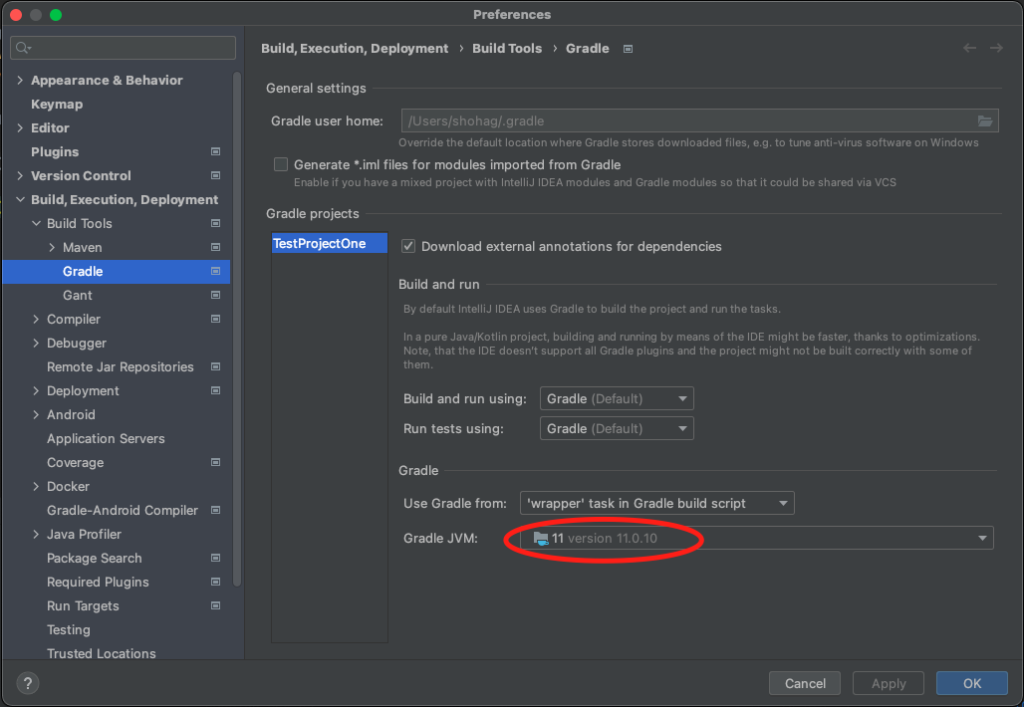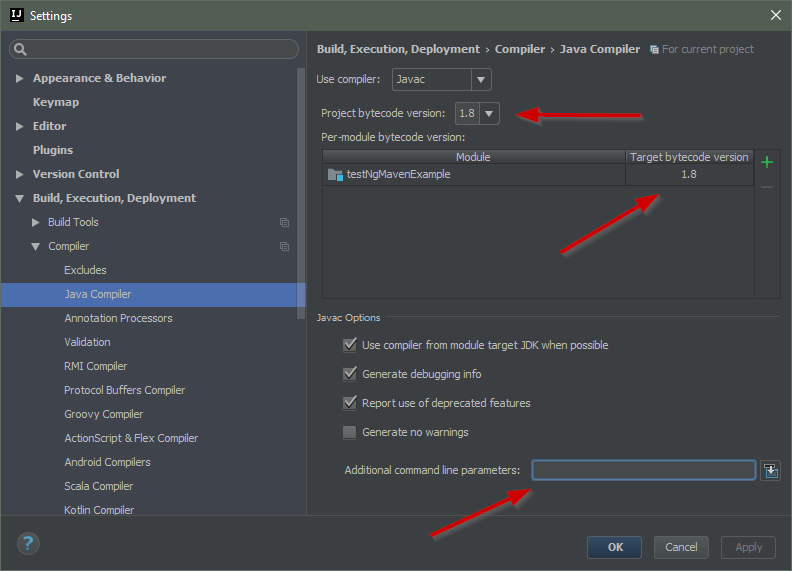I fixed this problem by changing the Gradle JVM settings in IntelliJ settings: In the Settings/Preferences dialog, go to Build, Execution, Deployment | Build Tools | Gradle. Under the Gradle section, change the Gradle JVM option....
I had this same issue when creating a Spring Boot application using their @SpringBootApplication annotation. This annotation represents @Configuration, @EnableAutoConfiguration and @ComponentScan according to the spring reference. As expected, the new annotation worked properly and my application ran smoothly...
JAVA_HOME should point to a JDK not a JRE
Most likely you have incorrect compiler options imported from Maven here: Also check project and module bytecode (target) version settings outlined on the screenshot. Other places where the source language level...
The java and javac executables are using the PATH environment variable, while intelliJ is using JAVA_HOME variable. Remove the additional quotation marks in your JAVA_HOME value. It might shows...
Steps for adding external jars in IntelliJ IDEA: Click File from the toolbar Select Project Structure option (CTRL + SHIFT + ALT + S on Windows/Linux, ⌘ + ; on Mac OS X) Select Modules at the left panel Select Dependencies tab Select + icon Select 1 JARs or directories option
This is because the className value which you are passing as argument forforName(String className) method is not found or doesn’t exists, or you a re passing the wrong value...
Some of your dependency JARs is a signed JAR, so when you combine then all in one JAR and run that JAR then signature of the signed JAR doesn’t...





